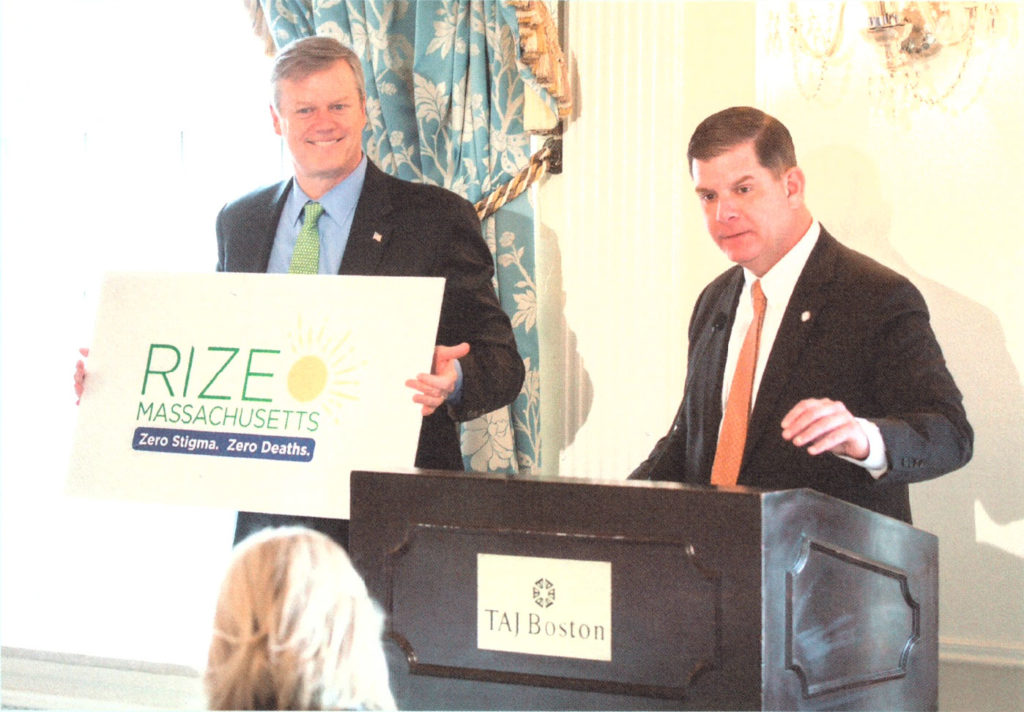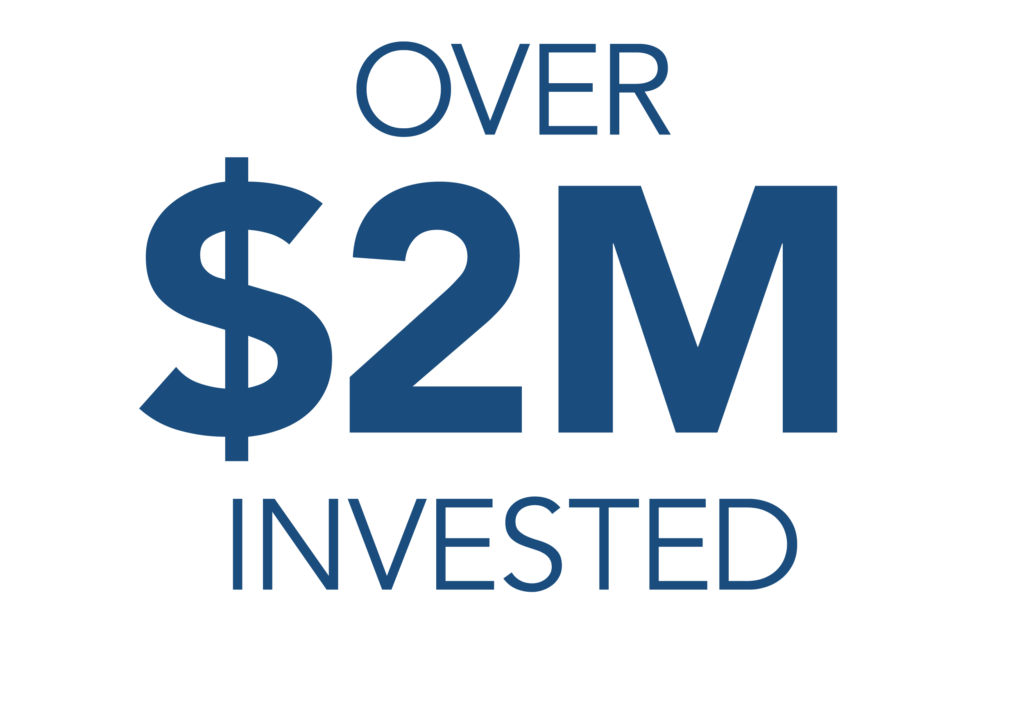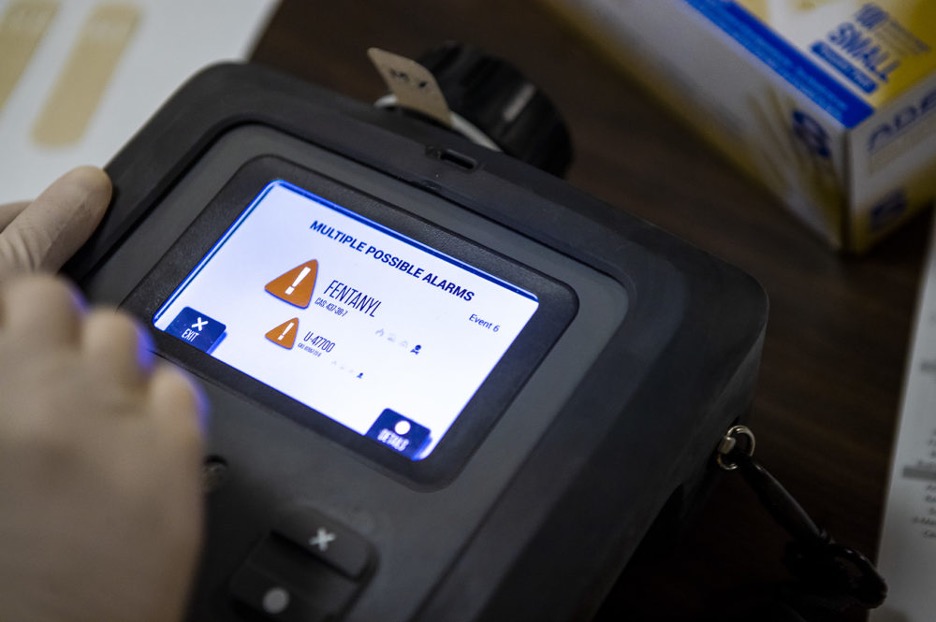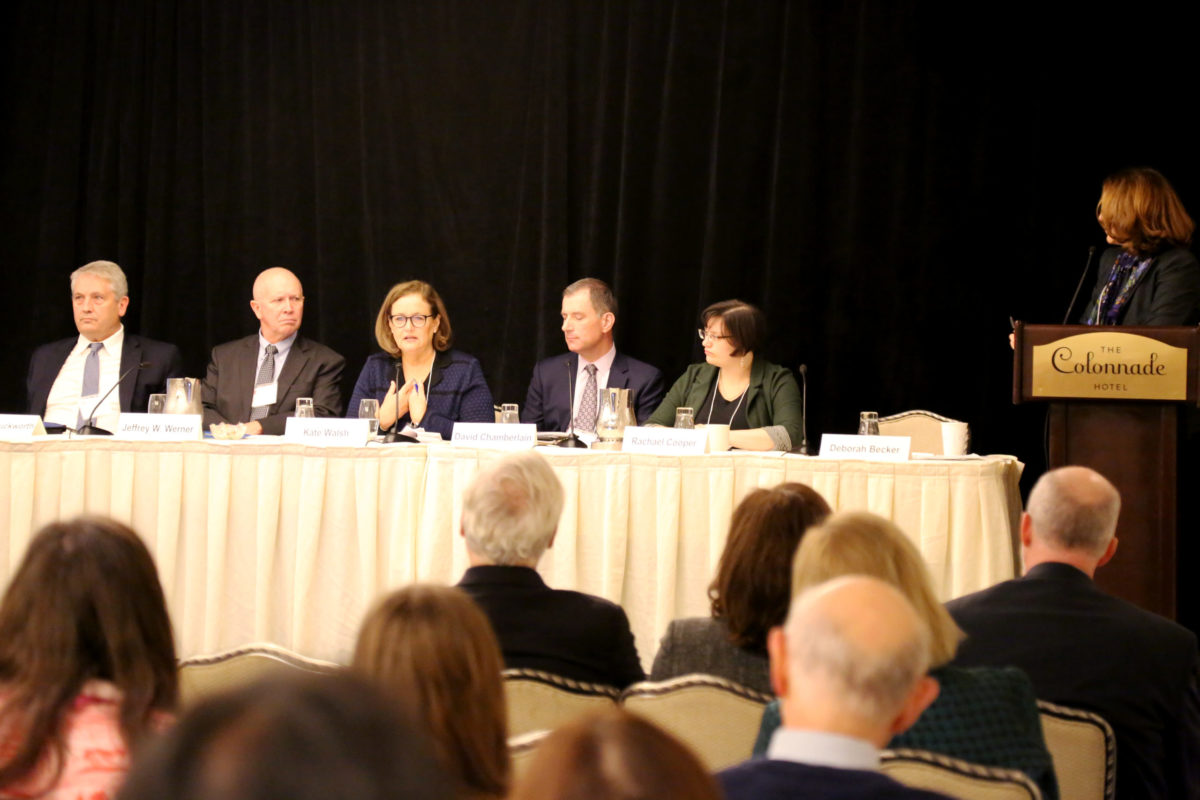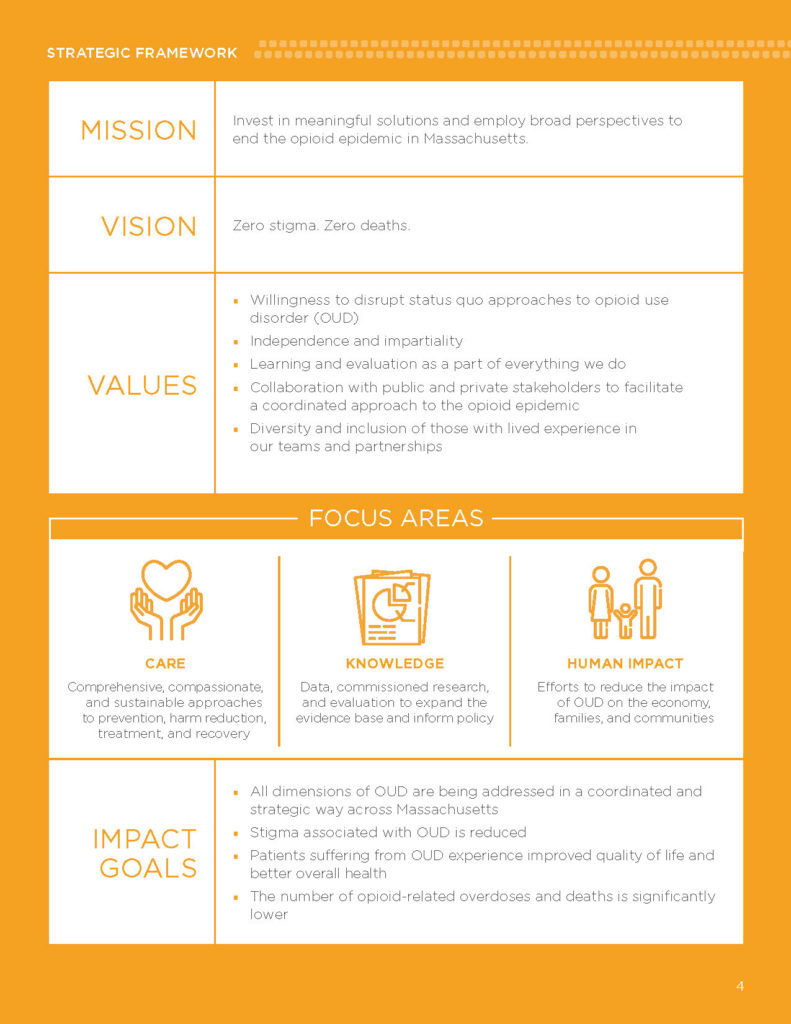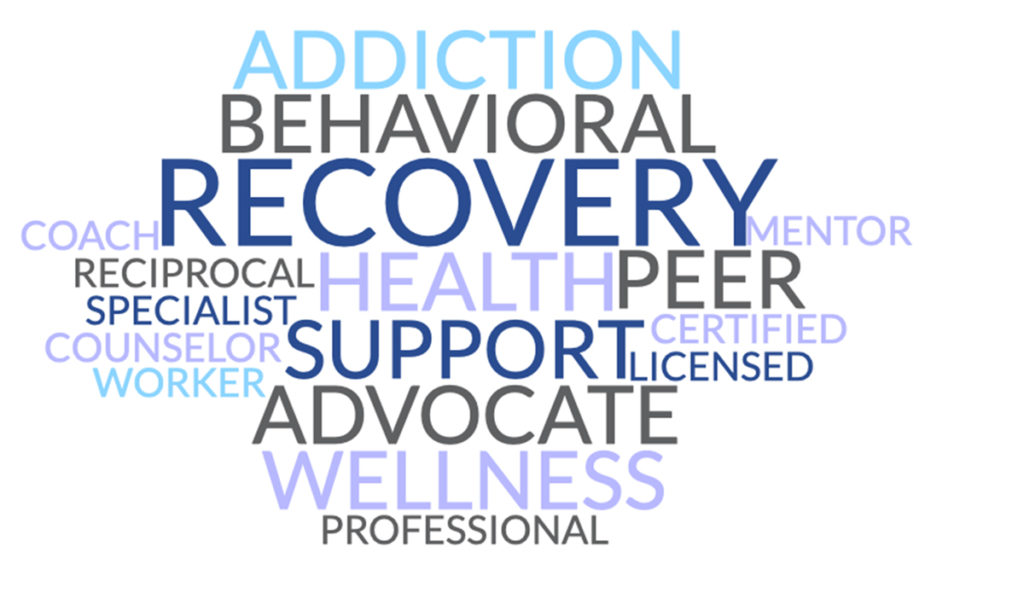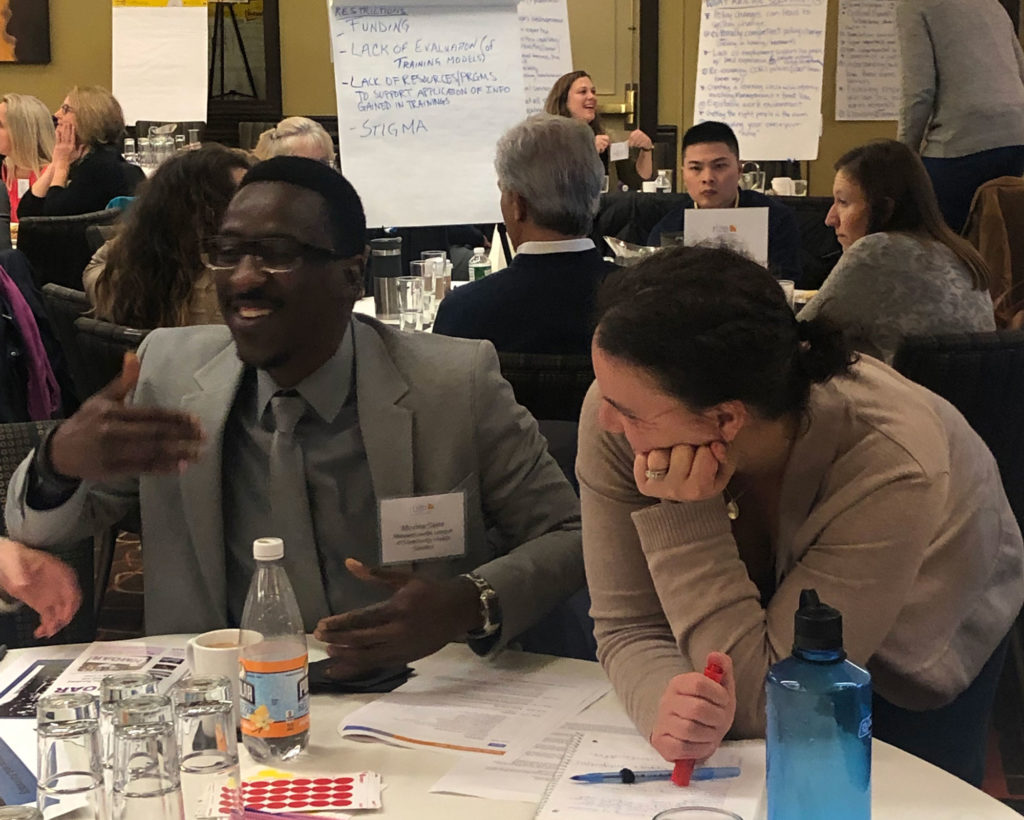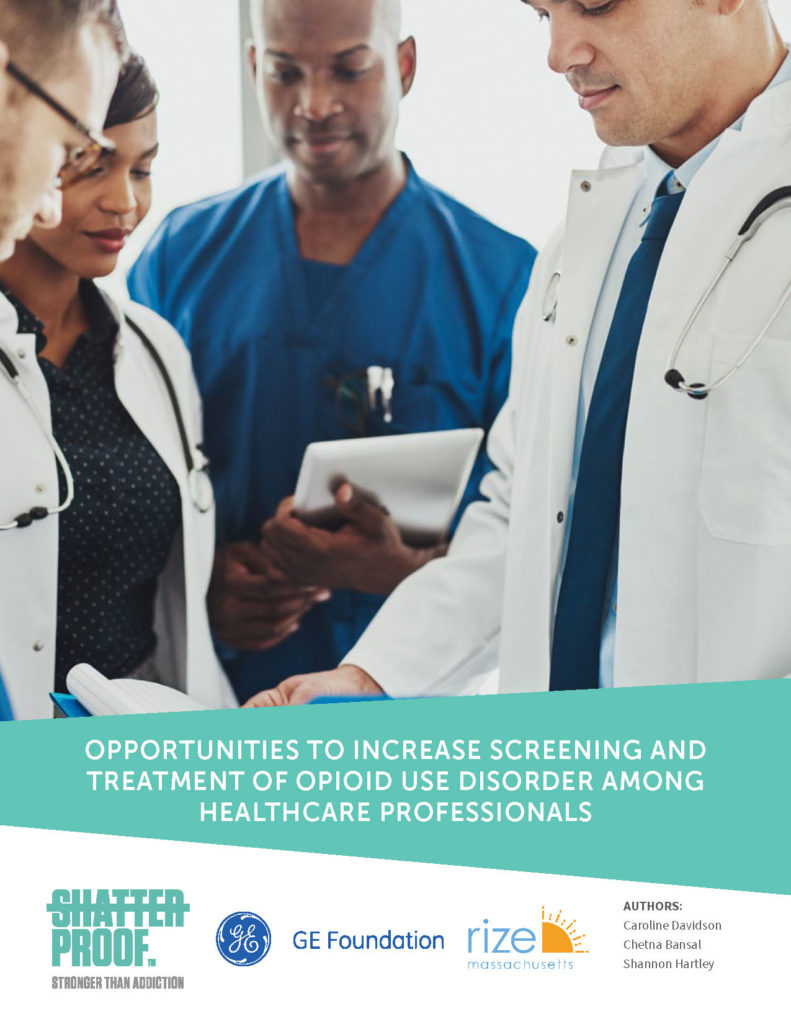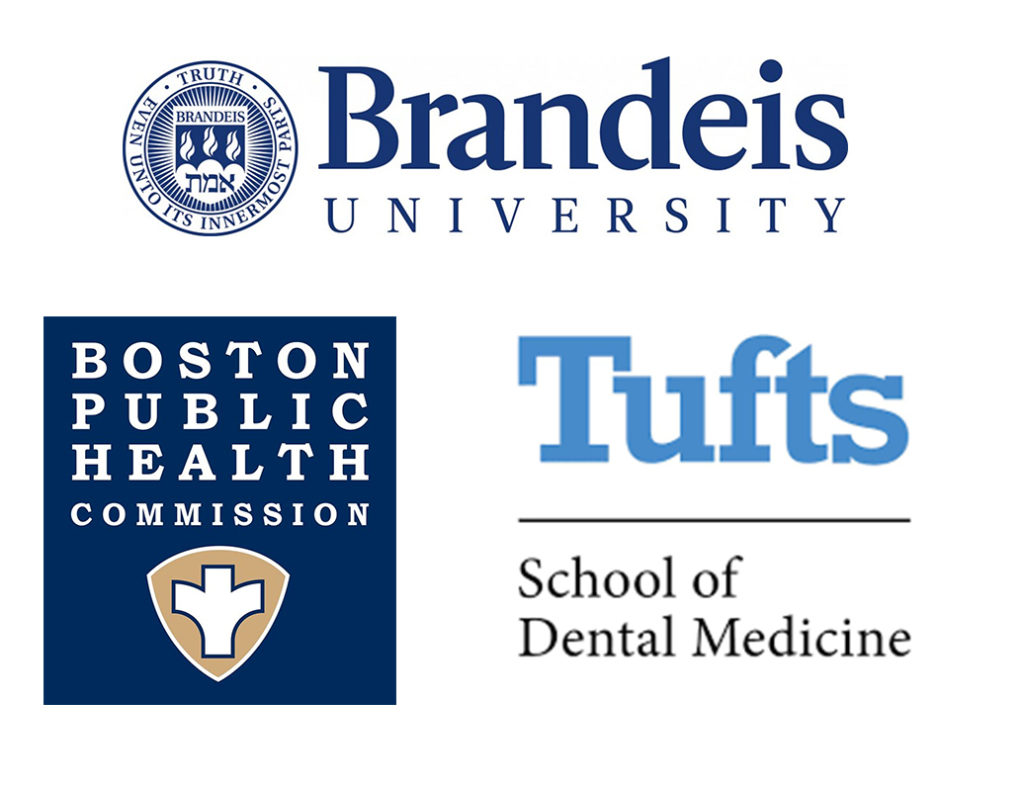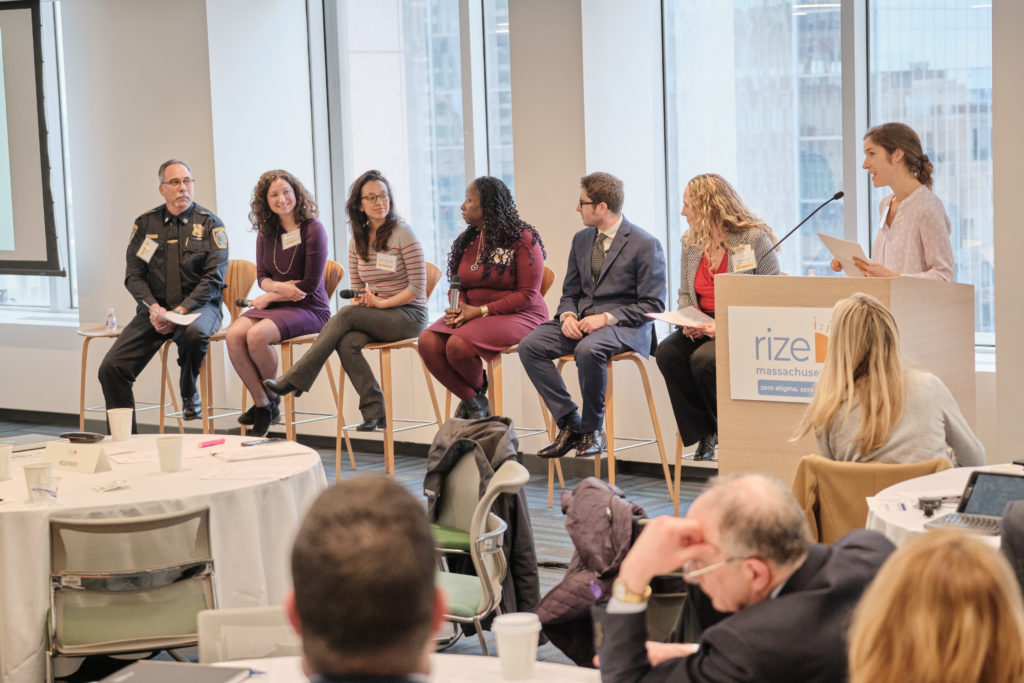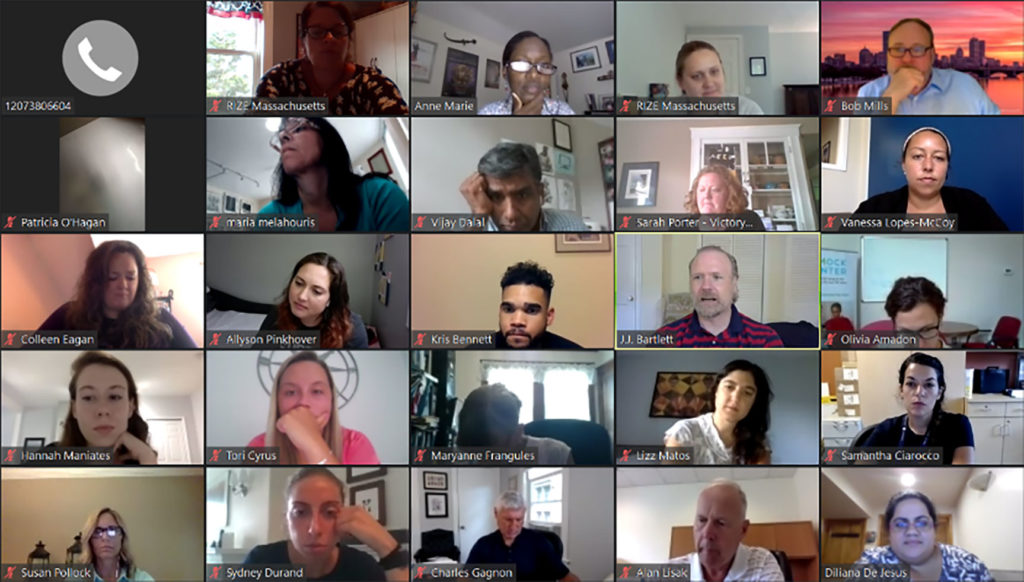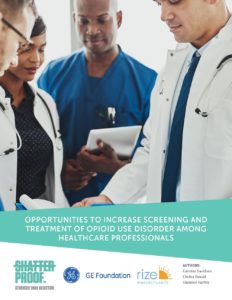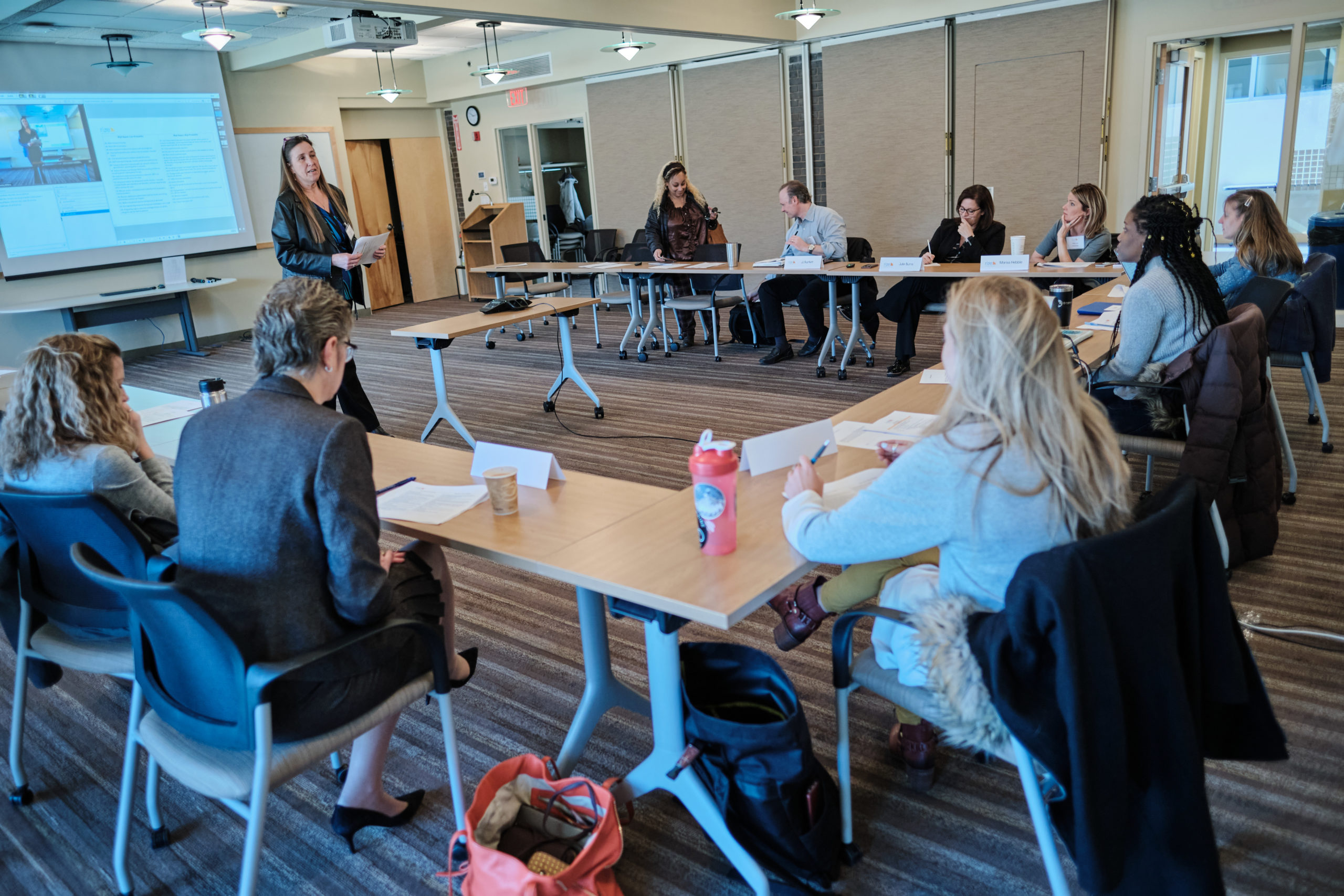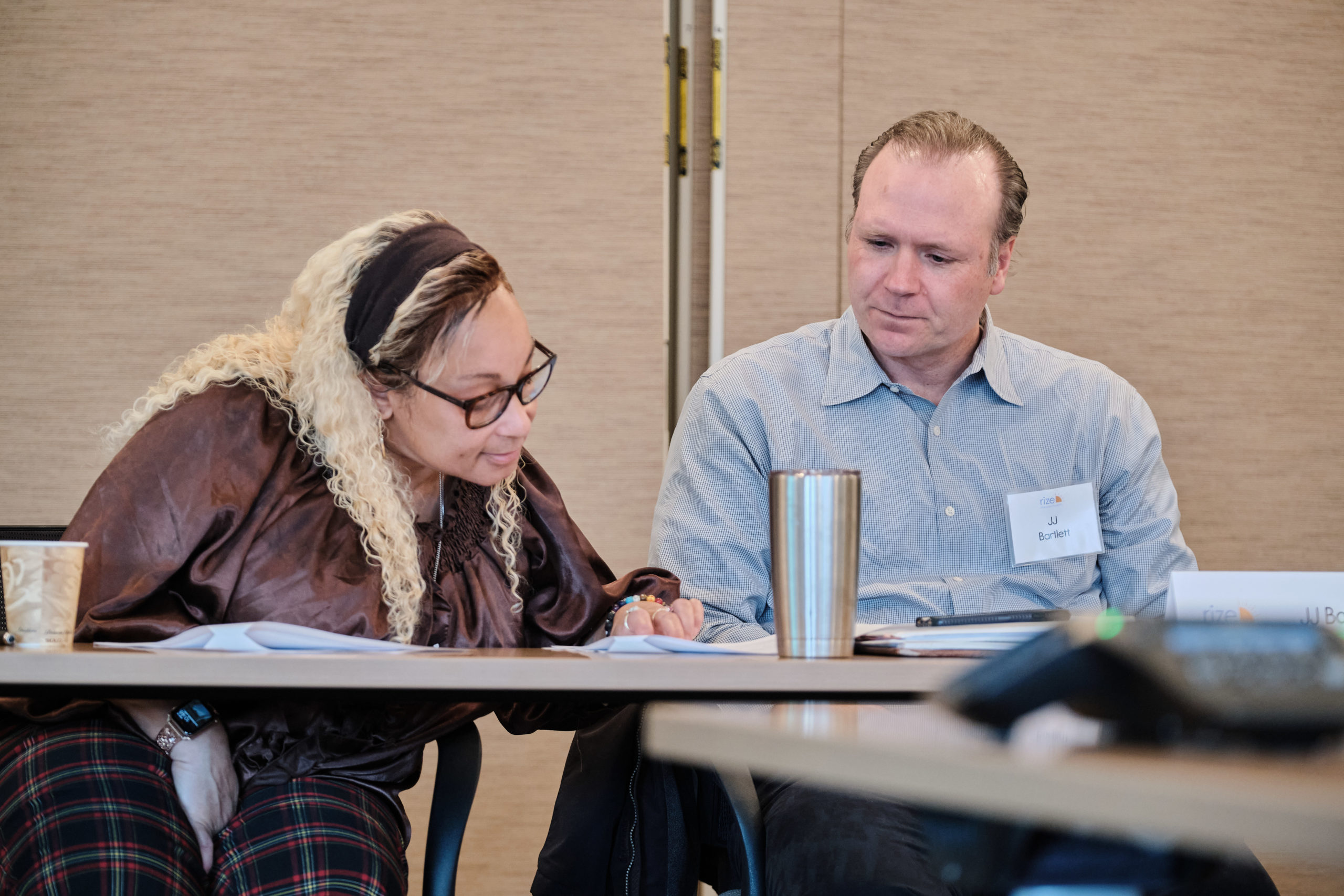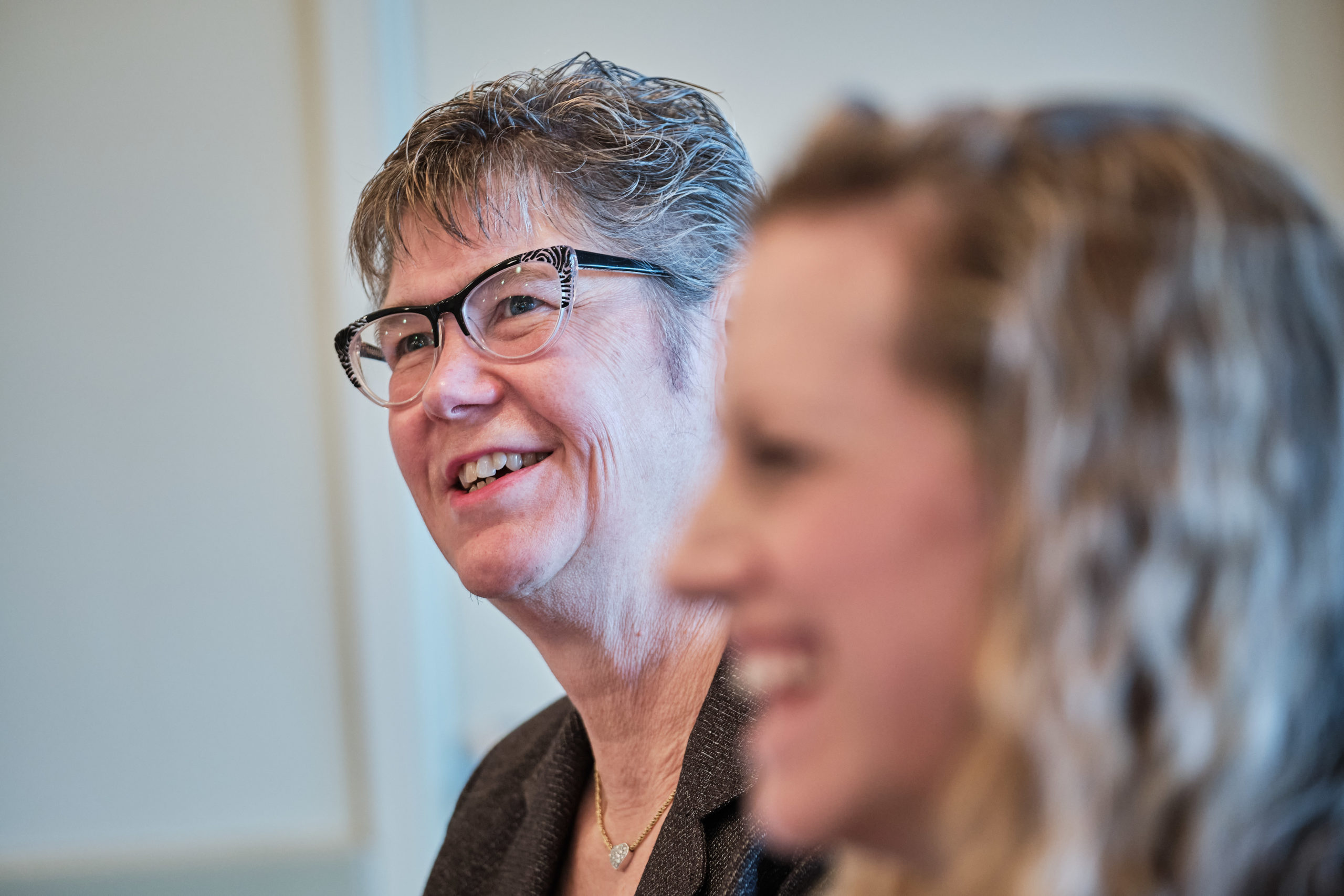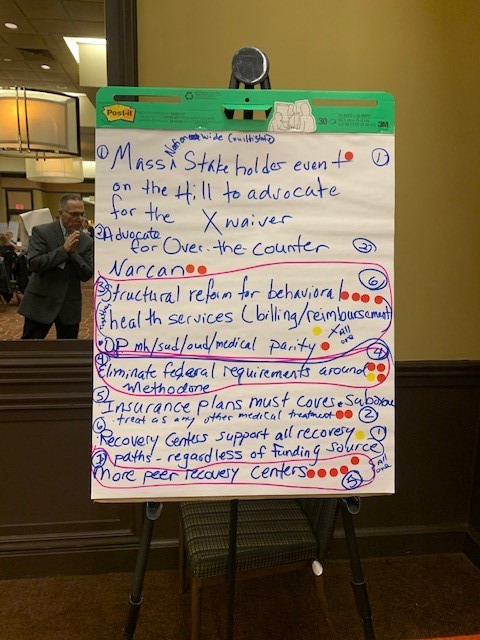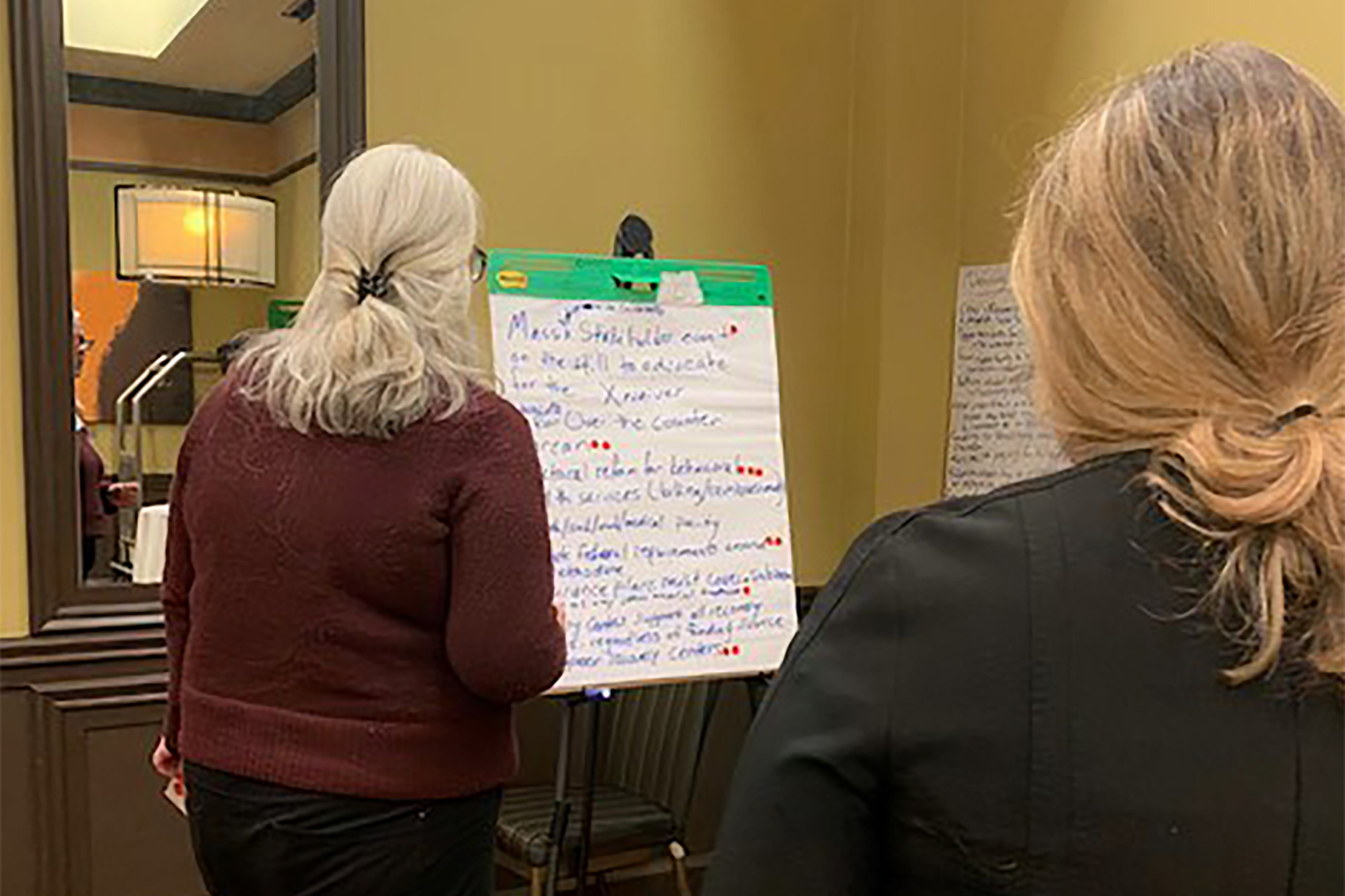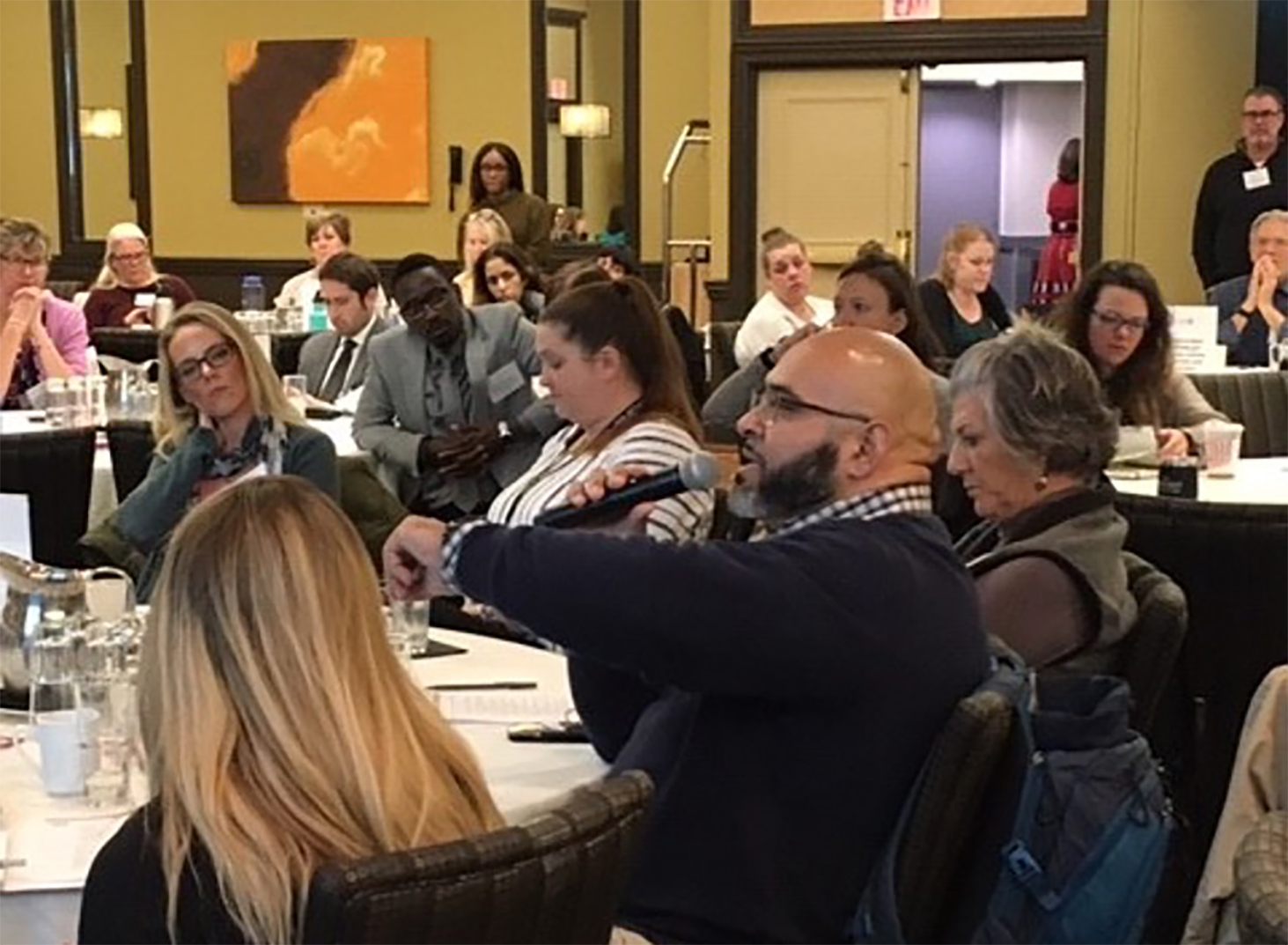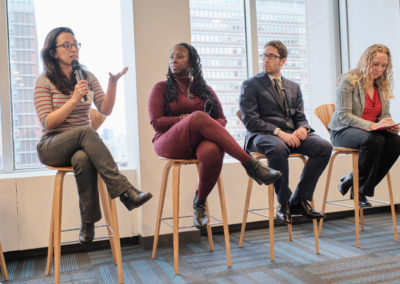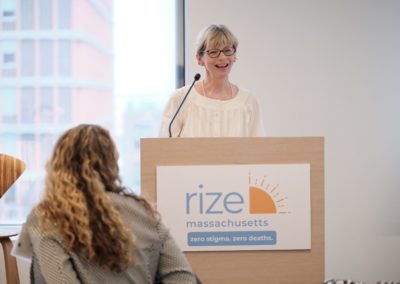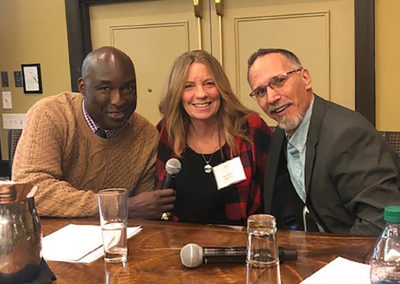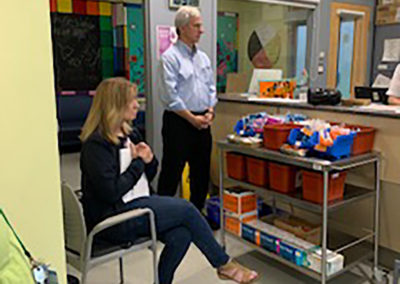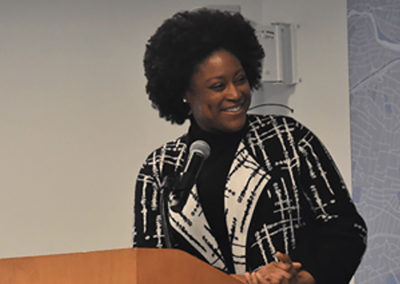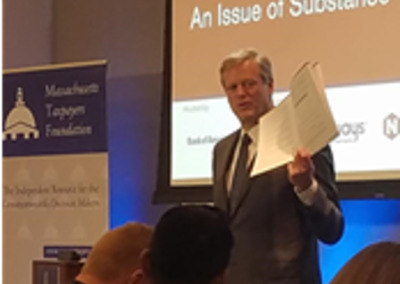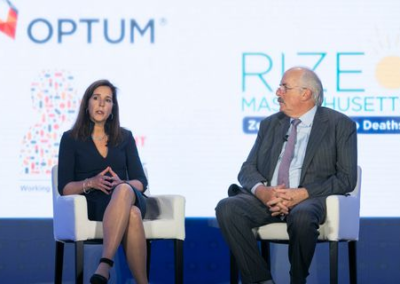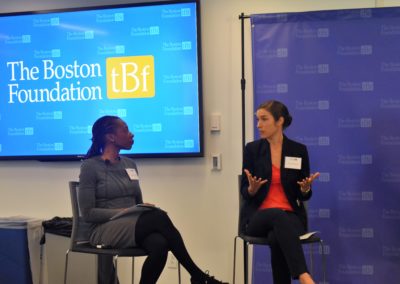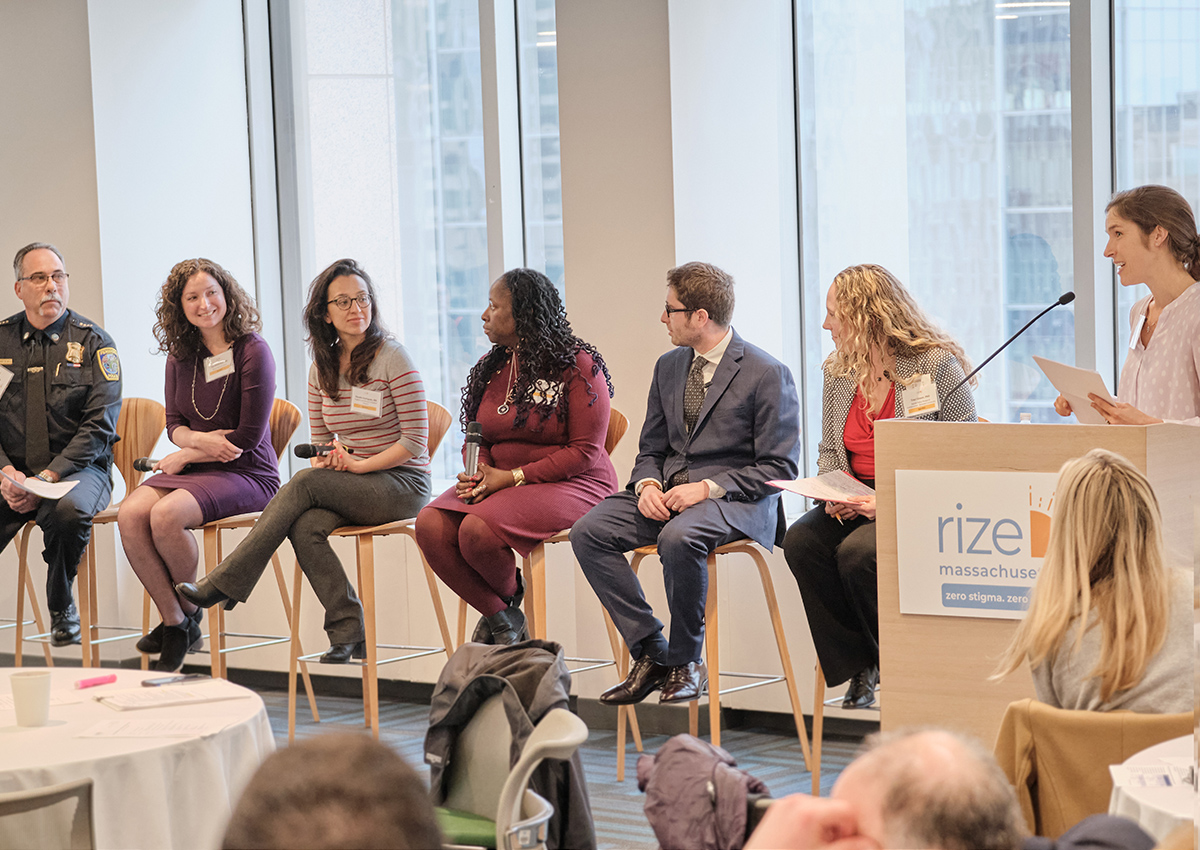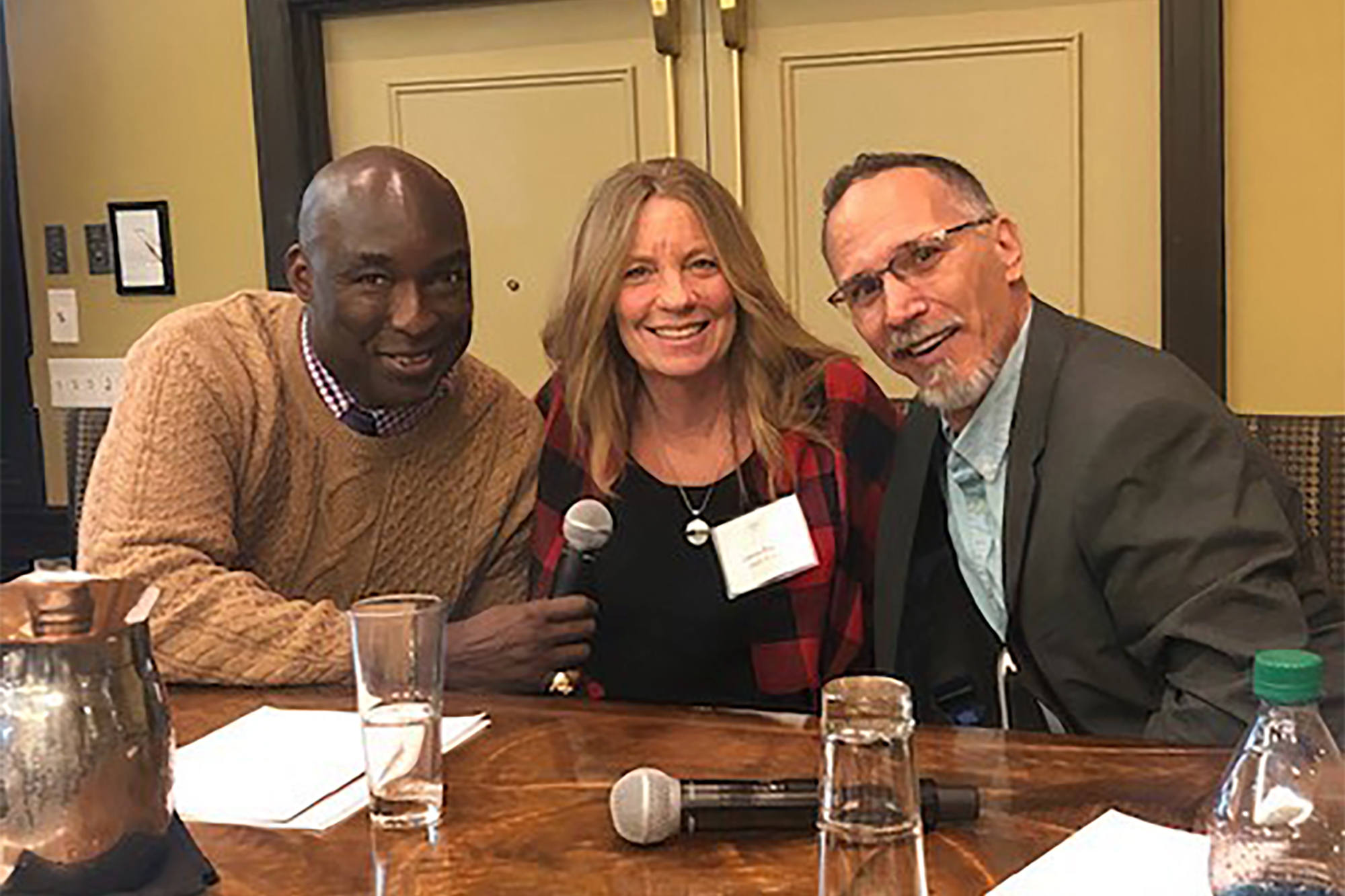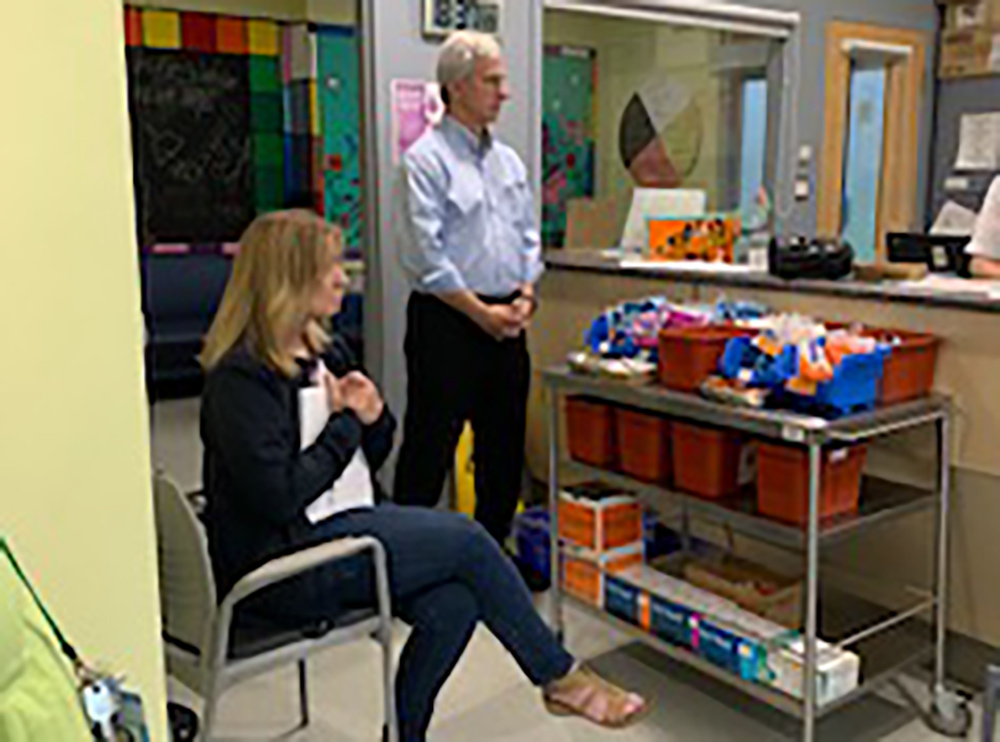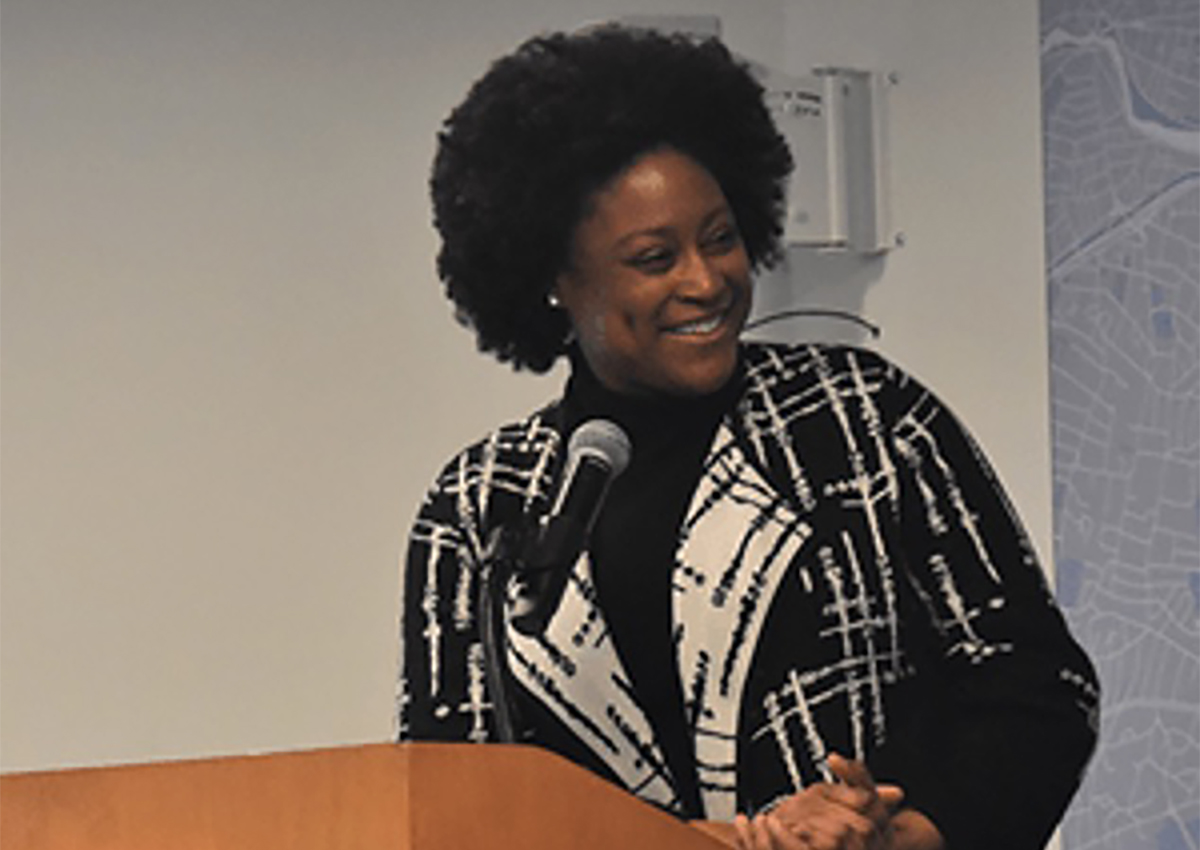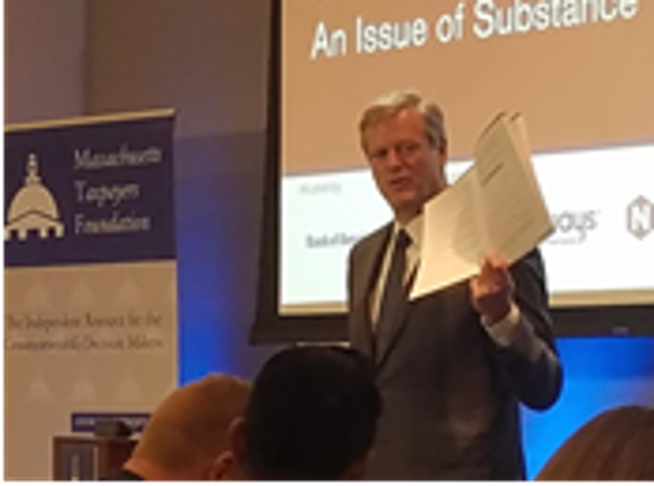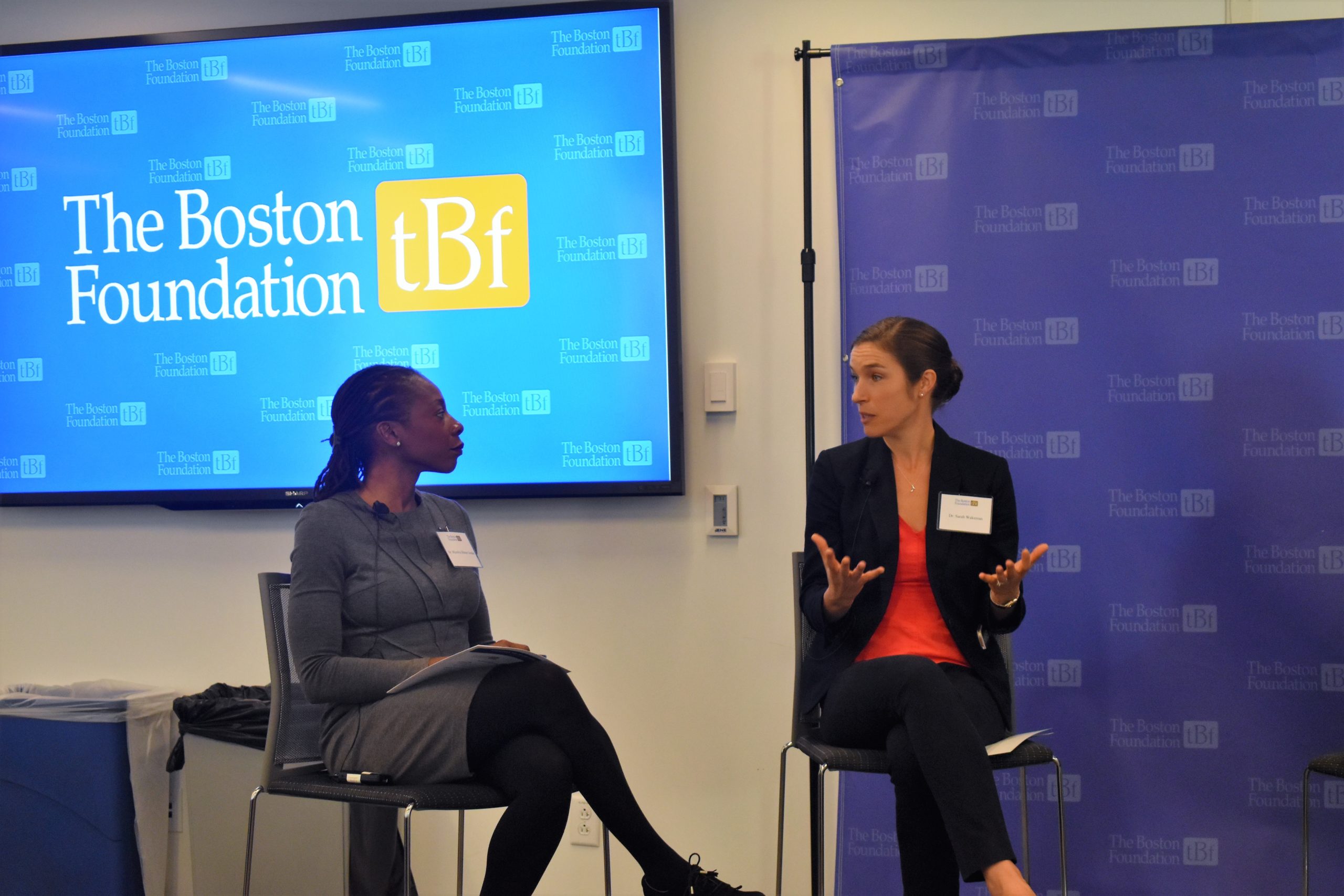Letter from our President and Board Chair
Dear Friends,
RIZE Massachusetts Foundation launched in 2017 through the enthusiastic collaboration of civic and private sector leaders, with a mandate to end the opioid overdose epidemic in Massachusetts. We aim for the aspirational goal of zero stigma, zero deaths.
In this impact report, we proudly present our first 1,000 days, as we continue our work to save the lives of the thousands of people who suffer from addiction in Massachusetts. From the early commitment of health care champions, CEOs, union leaders, and advocates, we continue to grow our network, including experts, people with lived experience, and the brightest minds in the academic, human services, and research communities, so that we can generate knowledge and fortify a statewide response.
To date, RIZE has invested over $7 million in nearly 70 organizations that have shown promising interventions. We have commissioned five research papers on topics ranging from the economic impact of the epidemic to stigma in health care. We have become a grass tops and grass roots convener on topics related to the opioid overdose epidemic.
Read More
We strive for a nimble response to an ever-changing epidemic — which most recently was nearly eclipsed by the coronavirus pandemic as it coursed through Massachusetts. RIZE distributed COVID-19 rapid response grants totaling $700,000 to treatment providers and community organizations facing financial strain as they delivered suddenly socially distant services to the most vulnerable individuals living with addiction.
We also acknowledged, with open hearts, the role racism has historically played in our nation’s response to drug epidemics; disparities in access to treatment; and the disproportionate number of Black, Brown and low-income individuals that end up in the criminal legal system. Tackling the opioid overdose epidemic requires clear-eyed recognition of the social determinants and structural inequities that contribute to substance use and addiction. We are poised to meet this moment and already have research underway and grants in the pipeline.
In reflecting on our first 1,000 days, we also reflected on our purpose:
RIZE exists because five people in Massachusetts lose their lives to overdose every day. They are brothers and sisters, relatives and parents, neighbors and friends, and their deaths are unacceptable to us.
RIZE exists because the opioid overdose epidemic threatens the health of our communities and the growth of our economy.
RIZE exists to support promising initiatives, apply principles from the business community, and encourage novel ideas to advance our shared goal.
RIZE exists because we have the support of a broad coalition of donors — corporate, individual, and foundations — and we are grateful that they are in the fight.
RIZE exists because solving the opioid overdose crisis cannot be done alone. We have learned that working together makes us smarter and stronger.
We have a lot of work ahead of us. We hope this report inspires you to join us for the next 1,000 days by supporting our work. With your help, there is hope.
In gratitude,
At-A-Glance
↓RIZE Highlights
$17M
raised since 2017 in gifts ranging from $10 to $10,000,000
subject matter experts and people with lived experience served on our grant review committees
$7M+
in investments to 60+ organizations
reports commissioned ranging from the impact of the overdose crisis on our economy to the drivers of stigma in the health care professions
convenings that RIZE has facilitated or participated in since 2017
%
of survey respondents found our convenings useful and timely. Our events have meaning.

Grantees
2017-Present
- AIDS Support Group of Cape Cod
- Boston Health Care for the Homeless Program
- Boston Medical Center
- Boston Public Health Commission
- Brandeis University
- Brockton Neighborhood Health Center
- Cambridge Health Alliance
- Casa Esperanza
- Center for Human Development
- Charlestown HealthCare Center
- City of Chelsea
- City of Everett
- City of Malden
- City of Medford
- Commonwealth of Massachusetts: Municipal Naloxone Bulk Purchasing
- Community Action Programs Inter-City, Inc.
- Community Healthlink
- Fenway Health
- Fishing Partnership Support Support Services
- Gavin Foundation
- Geiger Gibson Community Health Center
- Granada House
- Greater Lawrence Family Health Center
- Greater Roslindale Medical & Dental Center
- Harbor Health Services
- Health Resources in Action
- Hope House
- HRH413
- Institute for Community Health
- Interim House
- Kraft Center for Community Health
- Learn to Cope
- Life Connection Center
- Lynn Community Health Center
- Malden Overcoming Addiction
- Massachusetts General Hospital: Substance Use Disorder Initiative
- Massachusetts Health Policy Forum at Brandeis University
- Massachusetts Organization for Addiction Recovery
- Massachusetts Taxpayers Foundation
- Mattapan Community Health Center
- Metropolitan Area Planning Council
- Middlesex Human Services
- New England Culinary Arts Training
- New England User’s Union
- New Health Charlestown
- North Suffolk-Meridian House
- Ostiguy High School: Action for Boston Community Development
- Phoenix House
- Police Assisted Addiction Recovery Initiative (PAARI)
- Prisoners’ Legal Services Program
- Recovery Research Institute
- Rehabilitation & Health, Inc.
- Rhode Island Hospital
- Saint Francis House
- Shatterproof
- The Dimock Center
- The FrameWorks Institute
- The Philanthropic Initiative
- The Phoenix
- The Resource & Reclamation Center
- Tufts University School of Dental Medicine
- Tufts University School of Medicine
- Victory Programs
- Volunteers of America
Our Work
below we spotlight some of the projects where we’ve had the most impact over the last three years. ↓Investing in the Community
Since its inception, RIZE has invested over $7 million dollars in nearly 70 organizations across the Commonwealth. Our strategy is to address opioid use disorder (OUD) by gathering knowledge, informing policy, and supporting comprehensive treatment. The results will reduce the impact at all levels: on the individual, the family, the community, and the economy. We established our priorities: expand access to care, build the knowledge base, and widen our impact.
We have a growing network of experts comprised of the brightest minds in the academic, health care, and research communities. We align the many promising initiatives already underway and invest in the most successful and innovative programs. We share all that we learn to inform policy and empower others to act.
18%
spike in nonfatal drug overdoses during the COVID-19 pandemic
34%
of the people with substance use disorder surveyed reported changes or disruptions in accessing treatment or support services since the onset of COVID-19
Spotlight
Covid-19 Rapid Response Grants
On March 19, nine days after the state of emergency was announced, RIZE provided 25 of our community partners across the Commonwealth with one-time, rapid response grants totaling $205,000 to help support – and show gratitude for – our colleagues providing clinical and direct care to our most vulnerable populations under extremely challenging circumstances.
In April, we received a $250,000 grant from the Boston Resiliency Fund that we matched in full. We immediately awarded grants to local residential treatment providers who are using the funds to support staff, develop IT infrastructure to pivot to telehealth services, and increase sanitation measures.
We also funded two COVID-related research projects to document successes and challenges and describe the important lessons for future iterations of addiction care in Boston and elsewhere. By gathering this information, and helping to design and fund innovative solutions, RIZE provided unrestricted assistance during a time of tremendous uncertainty.
%
of patients in this program being treated for OUD have unstable housing, and 39% are diagnosed with a mental illness
Spotlight
Saving Lives: Improving Health
The overdose epidemic cuts across every facet of our society. It endangers not just one person – or one type of person – but entire communities. Such a broad crisis requires an equally broad response, with collaboration from stakeholders across different sectors. This was the approach with our inaugural grant program, Saving Lives: Improving Health, Redesigning Opioid Use Disorder Care. The goals are to establish or expand a system of low-threshold community-based programs, provide on-demand access to short-term treatment and support for long-term treatment, and to improve health and quality of life for individuals who suffer from OUD. Fifty-nine percent of patients in this cohort have unstable housing and 39% are diagnosed with a serious mental illness.
The results to date are promising. The following data are from Boston Health Care for the Homeless Program, Brockton Neighborhood Health Center, and Lynn Community Health Center. During the reporting period encompassing the last 18 months of the program, the grantees served a combined panel of 3,777 patients with OUD – a 20% increase from baseline. Of those patients, 1,297 (34%) were engaged in behavioral health care. Furthermore, 1,828 (48%) patients started medication for opioid use disorder (MOUD), a 61% increase from baseline. For these patients engaged in MOUD, 55% were retained in treatment after six months and 48% were retained after 12 months.

*Recovery in this model is defined as abstinence from non-prescribed opioids
Grantee Highlight: Statistics from Kraft Center Community Care in Reach (2018-19)
contacts during mobile outreach
new syringes distributed
naloxone kits distributed
Spotlight
Enabling Health: Enhancing Harm Reduction in Massachusetts
We are relentless in our efforts to achieve our long-term goal of zero stigma, zero deaths. We are committed to using every tool available to solve the overdose crisis, and harm reduction is one of those tools. Harm reduction is a pragmatic and compassionate approach to prevent or lessen the harms associated with substance use and other high-risk behaviors. Delivered by skilled workers in a variety of program models, harm reduction helps people experiencing substance use disorders get the services and resources they need to survive.
In October 2018, we awarded over $1 million to six organizations across the Commonwealth that are enhancing low-threshold harm reduction services in our Enabling Health: Enhancing Harm Reduction program. Grants were awarded to AIDS Support Group of Cape Cod, the Kraft Center for Community Health (Community Care in Reach), Fenway Health, Greater Lawrence Family Health Center, HRH413, and Life Connection Center. These grantees successfully engage individuals who struggle with active addiction and provide services like syringe exchange, naloxone distribution, and treatment navigation services for OUD.
The fatal overdose rate for Black men and women and Hispanic men rose between 2018 and 2019, while decreasing for white men and women, and Hispanic women.
(MA DPH)
What's Ahead
Innovations in Anti-Racism Grant
Tackling the overdose epidemic requires recognition of the social determinants and structural inequities that contribute to substance use and addiction. It also requires acknowledgment of the racial and ethnic inequalities in our nation’s response to past drug epidemics, disparities in access to treatment, and the disproportionate number of Black, Brown, and Indigenous people and low-income individuals that end up in the criminal justice system.
According to a report by the Substance Abuse and Mental Health Services Administration, attention to the overdose epidemic has focused primarily on white suburban and rural communities. And the 2017 Massachusetts State Health Assessment Report found that Black non-Hispanic and Hispanic individuals are less likely to complete treatment than white non-Hispanics because the differences in economic resources and experiences with social services may place racial/ethnic minorities at a disadvantage in terms of meeting the demands of a structured treatment program.
In October, RIZE will award grants through an exciting new program – Innovations in Anti-Racism to Address the Opioid Crisis. Our vision is that this program will have meaningful and positive results in reducing racism and improving access to evidence-based addiction treatment by reducing the stigma and structural barriers faced by Black, Latinx, and Indigenous people.
Increasing the Evidence-base
Only 11% of people aged 12 or older who needed substance use treatment received treatment at a specialty facility in the past year.
Only 1 in 10 emergency medicine providers found caring for patients with OUD satisfying, and only 25% of providers received training on addiction during medical education.
“Many doctors untrained, unwilling to treat opioid addiction.”
Spotlight
Survey on Stigma in the Health Care Professions
To address stigma in the healthcare professions, RIZE, the GE Foundation, and Shatterproof, a national nonprofit organization dedicated to reversing the course of the addiction crisis, collaborated on a year-long, Massachusetts-wide project, “Opportunities to Increase Screening and Treatment of Opioid Use Disorder among Healthcare Professionals.” The goal was to understand and identify opportunities to overcome stigmas that prevent certain healthcare providers from screening and treating patients with OUD and close the treatment gap. The research found that stigma associated with OUD extends to the provider community, where a minority of providers are trained in addiction, find treating OUD satisfying, or want to work with OUD patients.
The insights and learning were used to identify concrete opportunities for stigma-reduction programs and behavior change interventions across and within medical specialties to increase screening and treatment of OUD.
$9.7B
in lost productivity in Massachusetts from people unable to work, foregone income due to fatalities, absenteeism and presenteeism, and excess health care costs
estimated number of people that opioids kept from participating in the labor force every year for the last seven years
%
of people with OUD are full-time employees and 37% are on their employers’ insurance
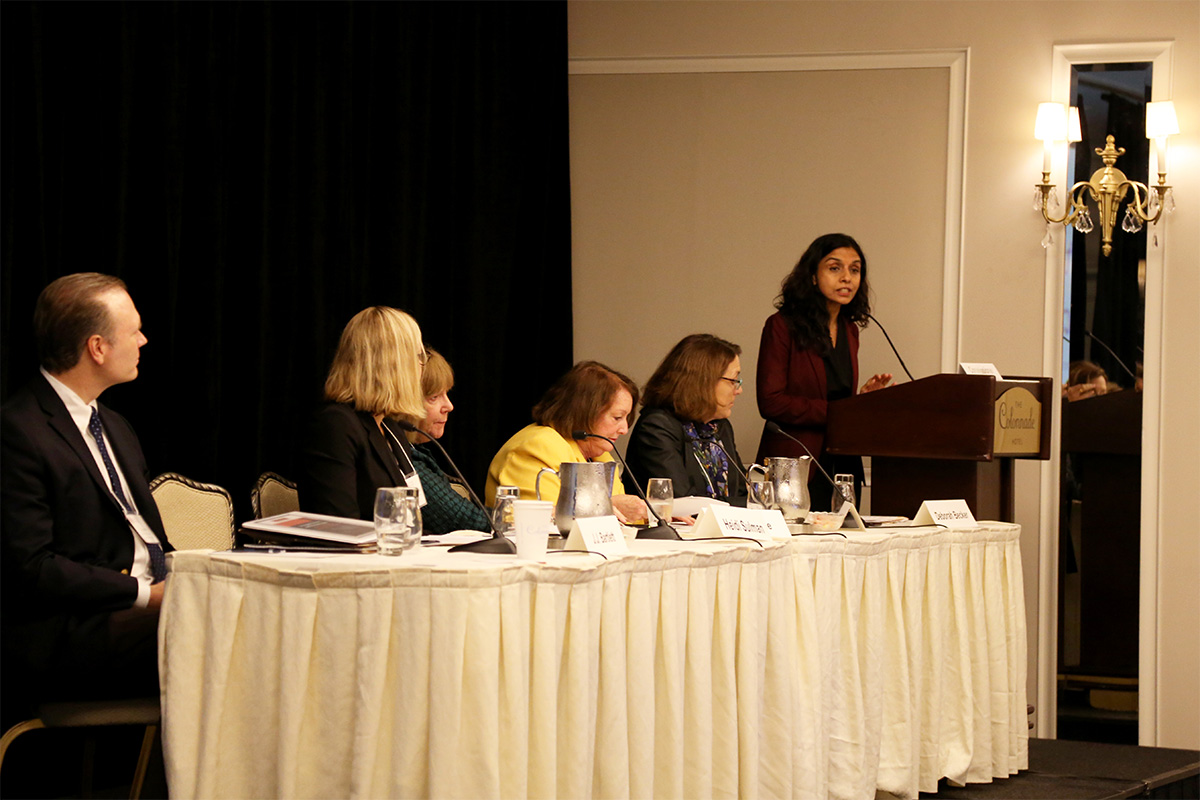
Spotlight
Economic Impact Studies
Two reports commissioned by RIZE showed that the overdose epidemic is taking a profound toll on the Commonwealth’s economy, workforce, and state budget. The reports, the first of their kind in Massachusetts, also provided recommendations on how employers can help employees with opioid addiction by increasing access to treatment and recovery. The reports were released in forums attended by over 400 people and received wide media attention.
What's Ahead
Investigator-Led Research
Through this program, RIZE is funding a research collaboration between the Boston Public Health Commission, the Institute for Community Health, and Boston Medical Center to examine the experiences and service-seeking behaviors of ethnically/racially diverse Boston residents in the thirty days following an opioid overdose. This research will promote a better understanding of the factors that influence access to treatment and identify opportunities for systems change, including the promotion of health equity.
A project led by Brandeis University is exploring how isolated physician networks can negatively impact care coordination and information sharing among physicians. The goal is to identify system-level factors associated with the development and sustaining of buprenorphine prescribing in a community, in particular structural properties of prescriber patient-sharing networks in which waivered physicians are embedded, and how these properties vary in relation to community demographics including racial/ethnic makeup.
These papers will be presented to the field in 2021.
Bringing People Together
Big challenges are often best addressed by going beyond traditional or defined boundaries and by thinking outside the box. They require gathering otherwise disconnected ideas and outcomes to cross-pollinate or provide evidence for one approach over another. RIZE is serving as the identifier, initiator, and integrator of solutions that could exponentially increase impact across the Commonwealth and beyond by bringing together business, healthcare, and community leaders in a coordinated effort to address the opioid overdose epidemic.
hospitals committed to mandatory trainings and to increasing the number of providers who obtain their buprenorphine waiver
Spotlight
Boston Teaching Hospitals Learning Community
people attended 8 regional meetings for Together in Recovery, representing employers, unions, the justice system, people in recovery, the faith community, legislators, and more
Spotlight
Together in Recovery
Another RIZE initiative that is working to expand access to OUD treatment and address inequities in our healthcare delivery system is Together in Recovery: Supporting Informed Decisions (TiR). This Commonwealth-wide initiative seeks to address the philosophical divides that exist in the treatment of OUD, with the main divide seen as that between medication treatment and abstinence-based treatment. The goal is to promote an integrated treatment and recovery community in Massachusetts that champions evidence-based approaches, supports multiple pathways to recovery, and promotes person-centered care. The initiative is the first of its kind in Massachusetts and it challenges the longstanding, institutional misconceptions about treatment and recovery as well as establishes common ground among stakeholders.
TiR is steered by a “Change Team” of diverse influencers, who span peer, clinical, policy, family, and community roles. As key stakeholders, the Change Team is constructing the vision for TiR that will drive future transformation across communities. During this project, RIZE convened eight regional meetings and one Commonwealth-wide meeting to discuss the many challenges associated with the treatment of OUD with diverse groups of stakeholders. Over 300 people attended these meetings and represented employers, unions, the justice system, people in recovery, the faith community, legislators, and more. We heard about the barriers that exist for both people seeking treatment and those in long-term recovery, such as lack of access to care and community supports, the presence of stigma, and a lack of information about treatment options. This is particularly true for Black, Brown, and Indigenous people, rural communities, and individuals who have low income.
Other RIZE convenings 2017-2020
Dr. Claudia Rodriquez, MD answers questions at the RIZE forum on polysubstance use. Co-panelists are Windia Rodriquez, Adam Stoler, and Dr. Traci Green. February 2020
EOHHS Secretary Marylou Sudders gives keynote at a RIZE forum titled Polysubstance Use – 4th Wave of the Opioid Crisis: What does it mean for Massachusetts? February 2020
RIZE board member Joanne Peterson and co-panelists Daryl McGraw and Steven Samra share their personal stories the RIZE’s Together in Recovery Statewide convening. November 2019
Anne Marie Boursiquot King, Senior Program Officer at RIZE chats with Vivian Li at the Sharing Solutions—Massachusetts Opioids and the Workforce Program. Co-hosted by the US Chamber of Commerce Foundation, the Greater Boston Chamber of Commerce, and RIZE. September 2019
RIZE board members Dr. David Barash and Joanne Peterson tour the South Riverdale Community Health Centre harm reduction program as part of a fact-finding trip to Toronto, Canada. June 2019
Nineequa Blanding, former Director of Health and Wellness at the Boston Foundation moderates a panel at a RIZE/Boston Foundation event: Confronting the Opioid Crisis in Massachusetts. March 2019
Charlie Baker, Governor of Massachusetts, speaking about The Massachusetts Opioid Epidemic: An Issue of Substance report at a Massachusetts Taxpayer Foundation Forum. November 2018
Dr. David Torchiana of Partners HealthCare and Martha Temple of Optum Behavioral Health discuss what’s working and what’s needed to end the opioid epidemic at a Washington Post Live event. February 2018
What's Ahead
Keeping People Together – and Safe
The collection of resources will launch in late October.
DOJ warned us to be ready for more stimulants and for poly-substance use and I have been spreading the word, but people don’t know how to prepare. This discussion was crucial.
inaugural donors
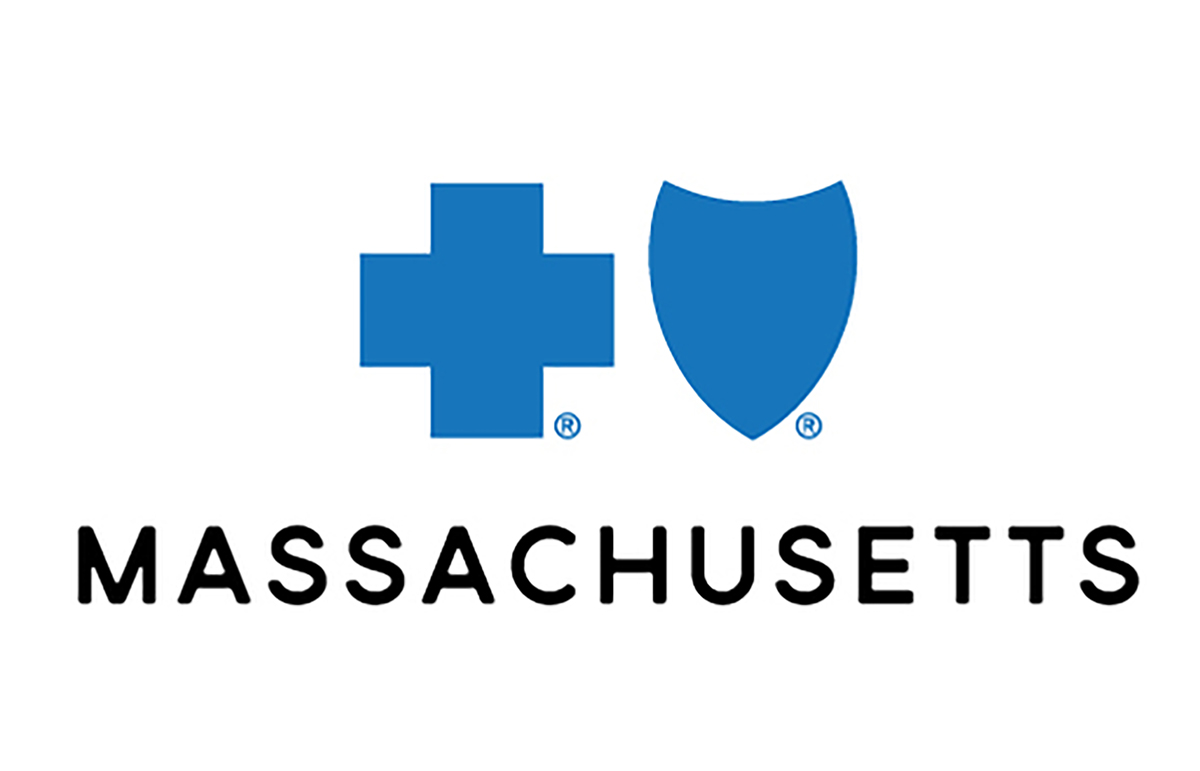
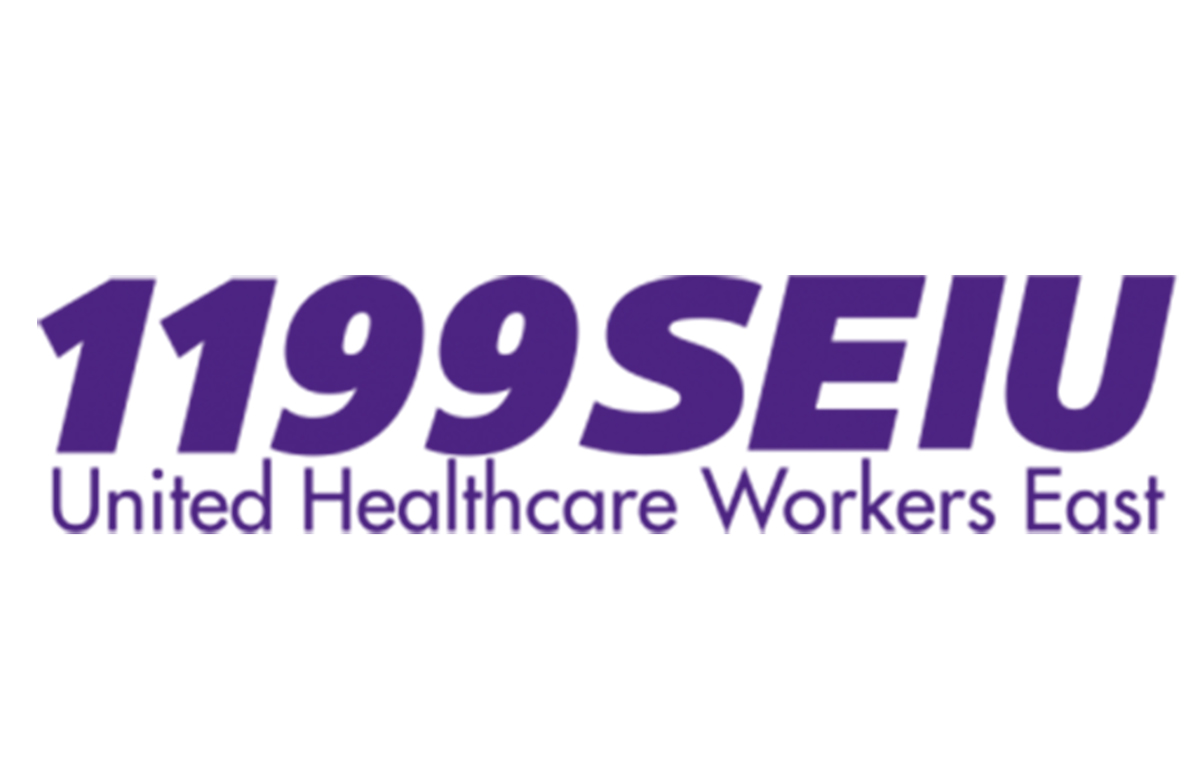
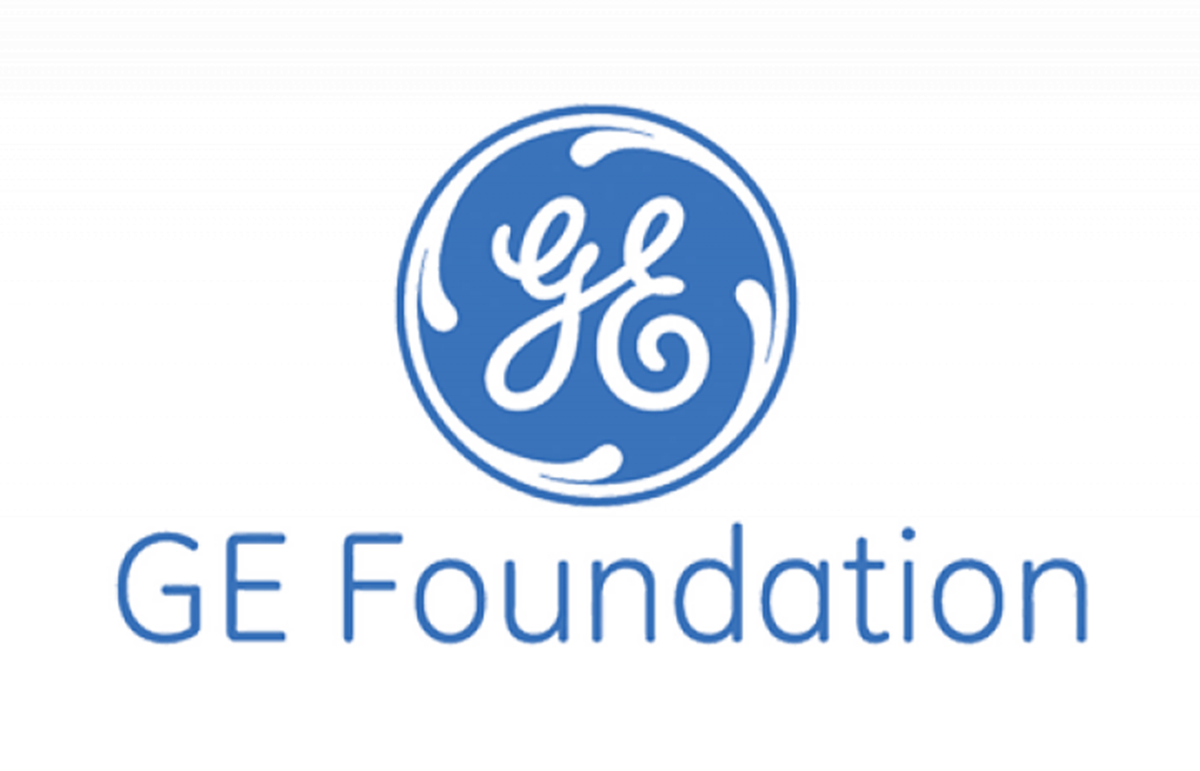
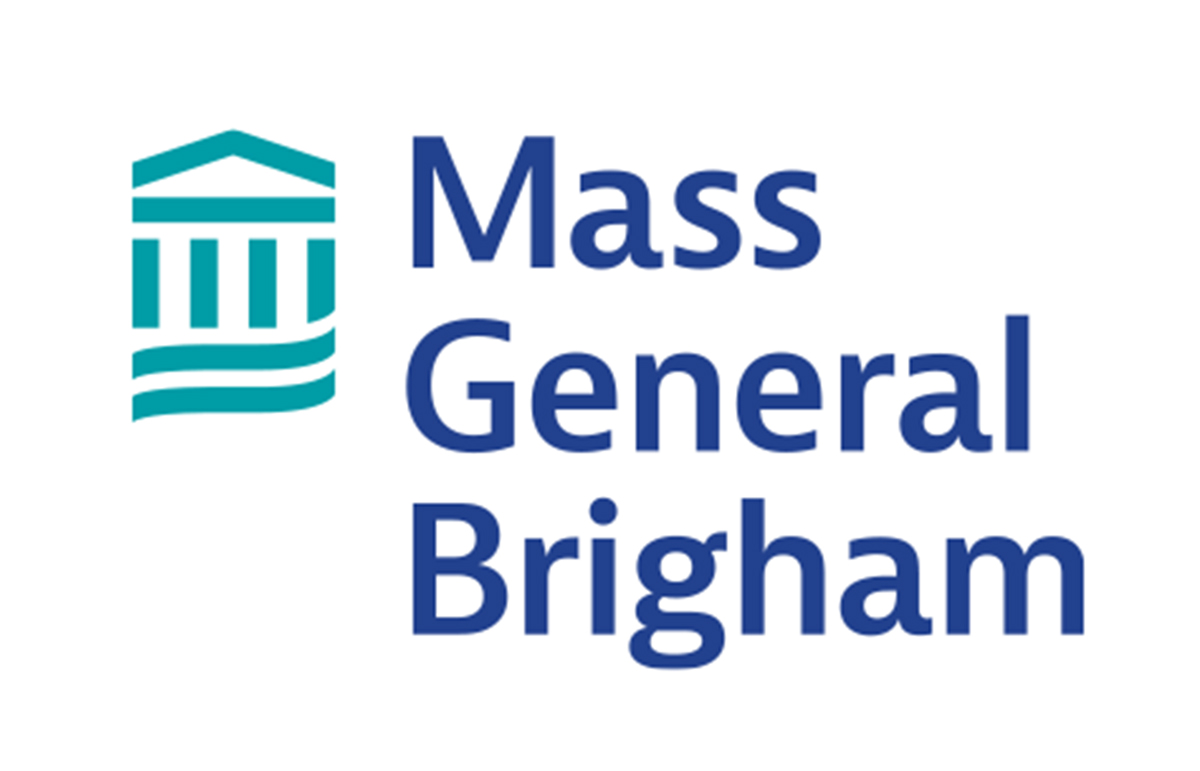
2017-Present:
Donors List
- Jared Annello
- Anonymous
- Susan Ascher
- Bank of America
- George D. Bell
- Bentall Kennedy
- Beverly J. Brogna
- Kyle Brownell
- Thomas Burr
- Julie Callanan
- Anthony Carli
- CBRE Group, Inc.
- Renessa Ciampa
- City of Boston Resiliency Fund
- Donna Clark
- Cornerstone Government Affairs, Inc.
- Paul Coyle
- Michael P. Currivan
- Gary Davidson
- Helaine Davis
- Deland, Gibson Insurance Associates, Inc.
- DentaQuest Partnership for Oral Health Advancement
- Joe Dilley
- Susan Drabick
- Eastern Bank Charitable Foundation
- Encore Boston Harbor
- Falmouth Jewish Congregation
- Fidelity Charitable
- Foundation & Marine Contractors Association
- Leslie Franssen
- Ralph Fuccillo
- Gayle Fulks
- Wendy Georgan
- Meryl M. Golden
- Michael Haigis
- Aisha Hakim
- Margaret Hartnett
- Harvard Pilgrim Health Care Foundation
- Serena Hon
- Constance Horgan
- Nora Hussey-Brennan
- Income Research + Management
- Susan Jarvis
- Jason Stone Injury Lawyers, P.C.
- John Hancock Financial Services
- Cheryl Johnson
- James B. Jones, M.D.
- Nina Jordan
- J. P. Norton Family Trust
- Valerie King
- Korn Ferry
- Jason Krantz
- Ashley Latta
- Sheila Lemke
- Ross Levanto
- Linde Family Foundation
- Michael Marquis
- Georgia Mavrommati
- Mary Clare McGraw
- Julie Michaud
- Deborah Micklos
- Peter Modest
- Diane Montgomery
- Julia Morin
- Ariel Mullen
- Steven Napolitano
- P&G Gillette
- Lauren Pak
- Christopher Palermo
- Vanessa C. Parks
- People’s United Bank
- Scott Pike
- Steven and Susan Pollock
- Marsha G. Presser
- Pritzker Traubert Family Foundation
- Jennifer Robinson
- Susan Robinson
- David Rosenberg
- Howard Rosenblatt
- Joel Rosenthal
- Alexander Roy
- James Rubin
- Thomas P. Schmitt
- Francis Senner-Hurley
- Casey Sewall
- Betty Shea
- State Street Foundation
- Gabriella Maria Tagliaferro
- Michael Tang, M.D.
- The AmerisourceBergen Foundation
- The Baupost Group, L.L.C.
- The Boston Foundation
- The Vertex Foundation
- David Torchiana, M.D.
- Tufts Health Plan Foundation
- Mark Walsh and Bryan Raffanelli
- Leslie Warner-Maloney
- Elizabeth Zaretsky
Organization
↓board & staff
RIZE Massachusetts Foundation is led by some of the most highly respected leaders in health care, addiction care, business, and labor.
Board of Directors
David Barash, MD
Ken Casey
Jack Connors
Andrew Dreyfus
Tim Foley
Reshma Kewalramani, MD
Vertex
Joanne Peterson
Steve Pollock, Chair
Joy Rosen, MS
Michael Tang, MD, MBA
Kate Walsh
Julie Burns, ex officio
RIZE Massachusetts
Staff
Julie Burns
Gail C. Favreau
Anne Marie Boursiquot King
Sarah Wakeman, MD
Abigail Hevert, LICSW
Sharim Shoman
2019 Financials
Financial Position Chart
(PDF)
990 Form
(PDF)
Join us in helping thousands of people and families across Massachusetts.
By supporting RIZE, we can exponentially increase our impact on the opioid epidemic across the Commonwealth. We’re only limited by the funds we raise.
